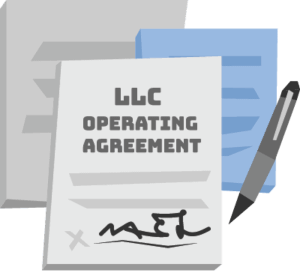How to Start an LLC in Wisconsin
Starting an LLC in Wisconsin begins with choosing a Wisconsin registered agent and filing Articles of Organization with Wisconsin’s Department of Financial Institutions (DFI). Online filings cost $130 and take one day to be processed. Filing by mail costs $170 and takes five days (plus additional time for mailing).
Our step-by-step guide shows you how to start and maintain an LLC in Wisconsin.

1. Name Your LLC
Step one in forming an LLC is choosing its legal name. You can’t pick a name that’s already been registered in Wisconsin, so you’ll need to research your name by performing a Corporate Records Search.
Wisconsin LLC naming requirements
Wisconsin’s rules for LLC names are outlined in WI ST § 183.0112. The name of your LLC must:
- Include an identifier like limited liability company, L.L.C, or LLC.
- Not include words that suggest that your business is a different entity type, like partnership or corporation.
- Be unique among other registered Wisconsin businesses.
Reserving a Business Name in Wisconsin
If your business name is available but you’re not ready to register your LLC, you can reserve your desired LLC name for up to 120 days by filing a Name Reservation Application ($15) with the state.
Getting a DBA (Doing Business As) Name
A DBA is used when a company wants to use a name other than their legal business name on official documents.
In Wisconsin DBAs are called trade names, and you can get one for $15 by applying online or by filing a paper form in person with Wisconsin’s DFI. Trade names last for 10 years and are treated similarly to trademarks in Wisconsin. Check out our DIY guide to getting a Wisconsin DBA.
Trademarking your WI LLC name
You may think that registering an LLC in Wisconsin means that no one else can use your business name, but that’s not always the case. If another business decides to use your LLC name, there’s not much you can do unless you register a trademark. It costs $15 to register a trademark in Wisconsin (online or in person filings only), and your mark will last 10 years before it needs to be renewed. If you want a stronger legal claim to your LLC name, register a federal trademark and protect your name on the national level.

2. Register Your Domain Name
Next up, it’s a really good idea to secure a domain name for your website. Why are these important? Just like you need a street address to help people find you on a map, you need a domain name to help people find you on the web.
For domain names, it’s better to register earlier rather than later. There are two basic reasons why:
- Credibility: When you bother to establish a professional domain name, you’re letting customers know you take your work seriously.
- Consistency: A domain name that connects to your brand name makes it simpler for customers to remember you, which makes them more likely to seek you out.
At Northwest, we offer domain names in-house. You’ll even get a free year of domain name registration when you hire us to form your business.

3. Appoint a Wisconsin Registered Agent
Your registered agent is a person or business that accepts legal and state mail on behalf of your LLC. Wisconsin requires all LLCs to appoint a registered agent. Your registered agent can be you, someone associated with the business, or a third party like a professional registered agent service.
Your registered agent’s name and address must be listed on your Articles of Organization, so you’ll need to appoint one before officially forming your LLC.
WI registered agent requirements
Your Wisconsin registered agent must meet the requirements outlined in WI ST § 183.0115. At minimum, your registered agent must:
- Have a physical address in the state (no P.O. Boxes).
- Be present at that address during regular business hours (9 AM to 5 PM).
- Agree to accept service of process on behalf of your LLC.
Using a registered agent service
Here are three reasons why hiring a registered agent service is a smart move:
1. Privacy: If you act as your own registered agent, your name and address will end up on Wisconsin public record. This is a bad idea if you value your privacy. A professional registered agent (like Northwest) will let you list their name and business address on all LLC filings where it’s allowed, helping to keep your personal information away from prying eyes.
2. Peace of mind: With Northwest, you’ll never have to worry about time-sensitive legal or state mail going unanswered because you were on vacation or out of the office. No matter where you are, we’ll notify you the same day your mail arrives.
3. Protect your image: Business can get messy. If you run into legal problems, you won’t want to get served in front of your customers or employees. A registered agent service will make sure this never happens.

4. File Wisconsin Articles of Organization
To officially form your LLC, you’ll need to complete the Wisconsin Articles of Organization.
Below is the information you’ll need to file your Wisconsin Articles:
Required:
- Company name: include an indicator like LLC or limited liability company.
- Registered agent: the person or company designated to accept legal documents on behalf of your business.
- Registered agent address: This must be a street address. This address will go on public record.
- Management structure: Specify whether members or managers will run your LLC. In a member-managed LLCs, the members (owners) are in charge of the day-to-day operations. In manager-managed LLCs, members hire managers to take on regular business tasks like hiring and firing employees, dealing with vendors, etc.
- Organizer: This is the person filing the document. You must include the organizer’s name, signature, address, and daytime phone number. This goes on public record.
Optional:
- Effective date: You can delay your LLC’s start date up to 90 days in the future, or skip this part to start your LLC right away.
How do I file the Wisconsin Articles of Organization?
Your completed Articles of Organization can be filed online or by mail. The filing fee is $130 for online filings (add $1 for state processing fee) or $170 for mailed filings (add $25 if you want to expedite processing).
Standard Mail:
WI-Dept. of Financial Institutions
P.O. Box 93348
Milwaukee, WI 53293-0348
Express or Priority Mail:
WI-Dept. of Financial Institutions
Division of Corporate and Consumer Affairs
4822 Madison Yards Way, North Tower
Madison, WI 53705
Online:
Wisconsin Department of Financial Institutions
Start Your Wisconin LLC Today!


5. Create an Operating Agreement
Wisconsin does not require LLCs to have an operating agreement, but you’d be wise to write one. That’s because your LLC’s operating agreement acts as a guide for every scenario your business is likely to face. While you can customize your agreement to fit your LLC’s needs, it should focus on big-picture issues like:
- initial investments
- distribution of profits and loses
- removing or adding members
- selling or dissolving the LLC
Drawing up an operating agreement can be daunting. Get started with our attorney-approved Wisconsin operating agreement template.

6. Get an EIN
An EIN (Employer Identification Number) is a unique nine-digit number assigned to businesses by the IRS. You’ll need an EIN if you have a multi-member LLC or to pay any employees your LLC might hire. You can get your EIN for free from the IRS. Or keep things simple and hire us, and we’ll get your EIN for you.

7. Next Steps
You can see the finish line, but there’s still a few more things you’ll need to do in order to maintain your LLC. We go over them here:
Opening a business bank account
If you mix your personal and business finances, LLC members assets could be vulnerable to a lawsuit or bankruptcy. A court could find that the owners of the LLC and the business itself are not separate entities because they didn’t take the steps to separate finances. That’s why opening a business bank account is a must.
To open a business bank account you’ll need a copy of your Wisconsin Articles of Organization, your LLC’s EIN, the operating agreement, and if your LLC has multiple members, an LLC Resolution to Open a Bank Account.
Tax requirements
LLCs are taxed as pass-through entities by default. This means the LLC itself is not taxed. Instead the profits pass through the business to the owners, who report the profits as income on their individual tax returns. LLC profits are taxed at the federal self-employment tax rate (15.3%).
Licenses and permits
If your LLC will be making sales in Wisconsin, you’ll need to apply for a Business Tax Registration (BTR) application, which lets your business collect and remit sales tax to the state. The BTR application can be printed and filed by mail or submitted online with Wisconsin’s Department of Revenue. The BTR license costs $20 and lasts for two years, then $10 every two years afterwards.
Depending on the industry your business is involved in, you may also need to apply for other tax permits such as food and beverage sales, lodging, vehicle rentals, or even professional licenses if your LLC will be involved in highly regulated fields like engineering or health care.
Wisconsin Annual Report
Each year your LLC will be required to file a Wisconsin Annual Report with the DFI. The annual report acts as a yearly check-in with the state where your business confirms or alerts the state to any changes with your LLC (like a change in address). The reports costs $25 and can be filed online with Wisconsin’s One Stop Business Portal (add $1 for online processing) or by mail with a paper form.
Annual reports are filed every year, starting the year after the LLC was formed. The report due date is based on the time of year the LLC was formed:
| LLC Formation Date | Annual Report Due Date |
| January 1–March 31 | March 31 |
| April 1–June 30 | June 30 |
| July 1–September 30 | September 30 |
| October 1– December 31 | December 31 |
START YOUR LLC

8. Wisconsin FAQs
Online filings cost $130 (plus a $1 online processing fee). Mailed filings are $170 ($195 for expedited processing).
Online filings are approved in one business day. Mailed filings take about five days to be processed once received. Expedited processing for mailed filings is available for $25, which cuts down processing to one day after receipt.
You can as long as you follow the transfer process that is listed in your LLC’s operating agreement. In most cases, LLC ownership is transferred when one LLC owner (member) buys out the other member or members to increase their ownership stake, or take over the LLC altogether.
Yes. Wisconsin allows qualifying student entrepreneurs to file Articles of Organization for free. To have your filing fee waived, you must be:
- Currently enrolled in a Wisconsin university or college.
- An organizer or member of the LLC.
- 18 years of age or older.
Student entrepreneurs will need to file Form 502SE instead of the standard Articles of Organization. Students will need to file by mail or in person to skip the filing fee. Online filings will still cost $130.
*This is informational commentary, not advice. This information is intended strictly for informational purposes and does not constitute legal advice or a substitute for legal counsel. This information is not intended to create, nor does your receipt, viewing, or use of it constitute, an attorney-client relationship. More information is available in our Terms of Service.
Ready to Start an LLC in Wisconsin?






